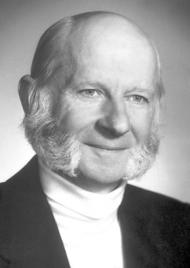Count Lev Nikolayevich Tolstoy (9 September 1828 – 20 November 1910), also known as Leo Tolstoy, was a Russian writer, philosopher and political thinker who primarily wrote novels and short stories. Tolstoy was a master of realistic fiction and is widely considered one of the greatest novelists of all time. He is best known for two long novels, War and Peace (1869) and Anna Karenina (1877). Tolstoy first achieved literary acclaim in his 20s with his semi-autobiographical trilogy of novels, Childhood, Boyhood, and Youth (1852–1856) and Sevastopol Sketches (1855), based on his experiences in the Crimean War. His fiction output also includes two additional novels, dozens of short stories, and several famous novellas, including The Death of Ivan Ilyich, Family Happiness, and Hadji Murad. Later in life, he also wrote plays and essays.
Tolstoy is equally known for his complicated and paradoxical persona and for his extreme moralistic and ascetic views, which he adopted after a moral crisis and spiritual awakening in the 1870s, after which he also became noted as a moral thinker, social reformer, and Georgist. His literal interpretation of the ethical teachings of Jesus, centering on the Sermon on the Mount, caused him in later life to become a fervent Christian anarchist and anarcho-pacifist. His ideas on nonviolent resistance, expressed in such works as The Kingdom of God Is Within You, were to have a profound impact on such pivotal twentieth-century figures as Mohandas Gandhi, Martin Luther King, Jr., and James Bevel.
Life and career
Tolstoy was born in Yasnaya Polyana, the family estate in the Tula region of Russia. The Tolstoys were a well-known family of old Russian nobility. He was the fourth of five children of Count Nikolai Ilyich Tolstoy, a veteran of the Patriotic War of 1812, and Countess Mariya Tolstaya (Volkonskaya). Tolstoy's parents died when he was young, so he and his siblings were brought up by relatives. In 1844, he began studying law and oriental languages at Kazan University. His teachers described him as "both unable and unwilling to learn." Tolstoy left the university in the middle of his studies, returned to Yasnaya Polyana and then spent much of his time in Moscow and Saint Petersburg. In 1851, after running up heavy gambling debts, he went with his older brother to the Caucasus and joined the army. It was about this time that he started writing.
His conversion from a dissolute and privileged society author to the non-violent and spiritual anarchist of his latter days was brought about by his experience in the army as well as two trips around Europe in 1857 and 1860–61. Others who followed the same path were Alexander Herzen, Mikhail Bakunin and Peter Kropotkin. During his 1857 visit, Tolstoy witnessed a public execution in Paris, a traumatic experience that would mark the rest of his life. Writing in a letter to his friend Vasily Botkin: "The truth is that the State is a conspiracy designed not only to exploit, but above all to corrupt its citizens ... Henceforth, I shall never serve any government anywhere."
His European trip in 1860–61 shaped both his political and literary development when he met Victor Hugo, whose literary talents Tolstoy praised after reading Hugo's newly finished Les Misérables. The similar evocation of battle scenes in Hugo's novel and Tolstoy's War and Peace indicates this influence. Tolstoy's political philosophy was also influenced by a March 1861 visit to French anarchist Pierre-Joseph Proudhon, then living in exile under an assumed name in Brussels. Apart from reviewing Proudhon's forthcoming publication, La Guerre et la Paix (War and Peace in French), whose title Tolstoy would borrow for his masterpiece, the two men discussed education, as Tolstoy wrote in his educational notebooks: "If I recount this conversation with Proudhon, it is to show that, in my personal experience, he was the only man who understood the significance of education and of the printing press in our time."
Fired by enthusiasm, Tolstoy returned to Yasnaya Polyana and founded thirteen schools for his serfs' children, based on the principles Tolstoy described in his 1862 essay "The School at Yasnaya Polyana". Tolstoy's educational experiments were short-lived, partly due to harassment by the Tsarist secret police. However, as a direct forerunner to A. S. Neill's Summerhill School, the school at Yasnaya Polyana can justifiably be claimed the first example of a coherent theory of democratic education.

